Edie Melson's Blog, page 417
March 31, 2014
Social Media Monday—The Basics for Building a Strong Platform through Social Media
by Edie Melson
 Anyone who reads this blog knows I believe it’s possible to build a strong platform through social media. I should, I did it. Beyond that, I’ve helped hundreds of other writers do the same things.
Anyone who reads this blog knows I believe it’s possible to build a strong platform through social media. I should, I did it. Beyond that, I’ve helped hundreds of other writers do the same things.
But with all the posts I’ve shared over the years, I haven’t lately laid out the basic building blocks, all in one place. Today I’m going to do just that.
Basic Building BlocksBloggingFacebookTwitter
That’s all there are, just three. But when you work them together you can capitalize on the synchronicity that results, here’s how:
Blogging You need to be blogging regularly somewhere. Your interactions on Facebook and Twitter are brief, because of the nature of the sights. Think of them as place to gather for short, casual conversations. On the other hand, blogging is a place where your readers get to know you better. They can sit and have a cup of coffee with you. You choose one of two places to blog regularly:Your own personal site.A group blog.
You need to be blogging regularly somewhere. Your interactions on Facebook and Twitter are brief, because of the nature of the sights. Think of them as place to gather for short, casual conversations. On the other hand, blogging is a place where your readers get to know you better. They can sit and have a cup of coffee with you. You choose one of two places to blog regularly:Your own personal site.A group blog.
If you’re blogging on your own site, you need to be posting a minimum of once a week. And that once a week needs to be a regular schedule. If you expect readers to visit your site regularly, then you must be there when you say you will. Think about it. How many times will you visit a business if you aren’t sure whether they’re open when they say they will be. It’s the same thing with a blog.
If you’re a part of a group blog, you must be blogging there a minimum of twice a month. Again this needs to be on a regular schedule.
 FacebookAt this point in time, unless you already have a thriving professional page, I strongly urge you to stick with a personal profile. If you want to know the reasons I recommend this, I did a post on How to Use YourFacebook Profile Professionally as well as Personally
FacebookAt this point in time, unless you already have a thriving professional page, I strongly urge you to stick with a personal profile. If you want to know the reasons I recommend this, I did a post on How to Use YourFacebook Profile Professionally as well as Personally
So how often should you post to FB? I recommend posting a minimum of 4 – 5 updates a day, 4 – 5 days a week. I also recommend commenting on a minimum of 2 posts a day, 4 – 5 days a week.
TwitterThis one’s a bit easier. I recommend a minimum of 5 tweets a day, 4 – 5 days a week.
Beyond that, I haven’t relented on my single hard-and-fast rule for social media:
Edie’s 5 to 1 RuleFor every 5 social media updates on a given network, you may only send out 1 about yourself or your product. Your product would be an article, blog post, book for sale (or offered for free), etc.
 Updates that aren’t about you include favorite quotes you share (as long as they’re not yours), Bible verses, questions, or general comments.
Updates that aren’t about you include favorite quotes you share (as long as they’re not yours), Bible verses, questions, or general comments.
You may add other networks to your social media plan, but these are the three I believe fall in the have-to-do category.
Now it’s your turn. What questions do you have about building an online platform? Be sure to leave them below.
And don’t forget to join the conversation!Blessings,
Edie
TWEETABLESWant to build a strong online platform? Get the basic building blocks from #SocialMedia Mentor @EdieMelson (Click to Tweet)
Building a strong online platform starts with the basics - #SocialMedia Mentor @EdieMelson shows you how (Click to Tweet)
 Anyone who reads this blog knows I believe it’s possible to build a strong platform through social media. I should, I did it. Beyond that, I’ve helped hundreds of other writers do the same things.
Anyone who reads this blog knows I believe it’s possible to build a strong platform through social media. I should, I did it. Beyond that, I’ve helped hundreds of other writers do the same things. But with all the posts I’ve shared over the years, I haven’t lately laid out the basic building blocks, all in one place. Today I’m going to do just that.
Basic Building BlocksBloggingFacebookTwitter
That’s all there are, just three. But when you work them together you can capitalize on the synchronicity that results, here’s how:
Blogging
 You need to be blogging regularly somewhere. Your interactions on Facebook and Twitter are brief, because of the nature of the sights. Think of them as place to gather for short, casual conversations. On the other hand, blogging is a place where your readers get to know you better. They can sit and have a cup of coffee with you. You choose one of two places to blog regularly:Your own personal site.A group blog.
You need to be blogging regularly somewhere. Your interactions on Facebook and Twitter are brief, because of the nature of the sights. Think of them as place to gather for short, casual conversations. On the other hand, blogging is a place where your readers get to know you better. They can sit and have a cup of coffee with you. You choose one of two places to blog regularly:Your own personal site.A group blog.If you’re blogging on your own site, you need to be posting a minimum of once a week. And that once a week needs to be a regular schedule. If you expect readers to visit your site regularly, then you must be there when you say you will. Think about it. How many times will you visit a business if you aren’t sure whether they’re open when they say they will be. It’s the same thing with a blog.
If you’re a part of a group blog, you must be blogging there a minimum of twice a month. Again this needs to be on a regular schedule.
 FacebookAt this point in time, unless you already have a thriving professional page, I strongly urge you to stick with a personal profile. If you want to know the reasons I recommend this, I did a post on How to Use YourFacebook Profile Professionally as well as Personally
FacebookAt this point in time, unless you already have a thriving professional page, I strongly urge you to stick with a personal profile. If you want to know the reasons I recommend this, I did a post on How to Use YourFacebook Profile Professionally as well as Personally So how often should you post to FB? I recommend posting a minimum of 4 – 5 updates a day, 4 – 5 days a week. I also recommend commenting on a minimum of 2 posts a day, 4 – 5 days a week.
TwitterThis one’s a bit easier. I recommend a minimum of 5 tweets a day, 4 – 5 days a week.
Beyond that, I haven’t relented on my single hard-and-fast rule for social media:
Edie’s 5 to 1 RuleFor every 5 social media updates on a given network, you may only send out 1 about yourself or your product. Your product would be an article, blog post, book for sale (or offered for free), etc.
 Updates that aren’t about you include favorite quotes you share (as long as they’re not yours), Bible verses, questions, or general comments.
Updates that aren’t about you include favorite quotes you share (as long as they’re not yours), Bible verses, questions, or general comments.You may add other networks to your social media plan, but these are the three I believe fall in the have-to-do category.
Now it’s your turn. What questions do you have about building an online platform? Be sure to leave them below.
And don’t forget to join the conversation!Blessings,
Edie
TWEETABLESWant to build a strong online platform? Get the basic building blocks from #SocialMedia Mentor @EdieMelson (Click to Tweet)
Building a strong online platform starts with the basics - #SocialMedia Mentor @EdieMelson shows you how (Click to Tweet)
Published on March 31, 2014 01:00
March 30, 2014
Weekend Worship—What Am I Really Afraid Of?
The fear of the Lord is a fountain of life,
turning people away from the snares of death. Proverbs 14:27
 Image credit: stuartphoto / 123RF Stock PhotoWe writers are a fearful lot.
Image credit: stuartphoto / 123RF Stock PhotoWe writers are a fearful lot.
We let so many things stand between us and the words we’re called to share.The opinions of others.Being ridiculed.Falling short.Failing.Success.
And writers don’t have a monopoly on fear. We all struggle against this deadly enemy. No, I didn’t misspeak. Fear is deadly. It strangles all hope, killing our dreams with a dreaded whisper of what if.
But what if fear isn’t always a death sentence for our dreams. What if the right kind of fears could propel us into fulfilling our callings?
I’d like to propose that we’re afraid of the wrong things.Instead of fearing the opinions of others, we feared the opinion of God Instead of fearing ridicule, we feared NOT standing for something that matter.Instead of fearing falling short, we feared not making an effort.Instead of failing, we feared immobility.Instead of fearing success, we feared putting the emphasis on the wrong things.
Instead of fearing ridicule, we feared NOT standing for something that matter.Instead of fearing falling short, we feared not making an effort.Instead of failing, we feared immobility.Instead of fearing success, we feared putting the emphasis on the wrong things.
Today I’m starting new, redirecting the fear I feel in the right direction. How about you? What fear do you need to redirect to once again get back in the middle of the path God has for you?
 Image credit: stuartphoto / 123RF Stock PhotoWe writers are a fearful lot.
Image credit: stuartphoto / 123RF Stock PhotoWe writers are a fearful lot.We let so many things stand between us and the words we’re called to share.The opinions of others.Being ridiculed.Falling short.Failing.Success.
And writers don’t have a monopoly on fear. We all struggle against this deadly enemy. No, I didn’t misspeak. Fear is deadly. It strangles all hope, killing our dreams with a dreaded whisper of what if.
But what if fear isn’t always a death sentence for our dreams. What if the right kind of fears could propel us into fulfilling our callings?
I’d like to propose that we’re afraid of the wrong things.Instead of fearing the opinions of others, we feared the opinion of God
 Instead of fearing ridicule, we feared NOT standing for something that matter.Instead of fearing falling short, we feared not making an effort.Instead of failing, we feared immobility.Instead of fearing success, we feared putting the emphasis on the wrong things.
Instead of fearing ridicule, we feared NOT standing for something that matter.Instead of fearing falling short, we feared not making an effort.Instead of failing, we feared immobility.Instead of fearing success, we feared putting the emphasis on the wrong things. Today I’m starting new, redirecting the fear I feel in the right direction. How about you? What fear do you need to redirect to once again get back in the middle of the path God has for you?
Published on March 30, 2014 01:00
March 29, 2014
Social Media Image—The Greatness of God
What reminds you of the greatness of God?
 I can see how it might be possible for a man to look down upon the earth & be an atheist,
I can see how it might be possible for a man to look down upon the earth & be an atheist,
but I cannot conceive how he could look up into the heavens & say there is no God.
—Abraham LincolnShare your thoughts in the comment section below.
I also invite you to use this image any way you like online. Post it to your blog, share it on Facebook, Twitter, Pinterest, anywhere you'd like. All I ask is that you keep it intact, with my website watermark visible.
Don't forget to join the conversation!Blessings,Edie
 I can see how it might be possible for a man to look down upon the earth & be an atheist,
I can see how it might be possible for a man to look down upon the earth & be an atheist,but I cannot conceive how he could look up into the heavens & say there is no God.
—Abraham LincolnShare your thoughts in the comment section below.
I also invite you to use this image any way you like online. Post it to your blog, share it on Facebook, Twitter, Pinterest, anywhere you'd like. All I ask is that you keep it intact, with my website watermark visible.
Don't forget to join the conversation!Blessings,Edie
Published on March 29, 2014 01:00
March 28, 2014
How is Writing Like a Blind Date?
by Edie Melson
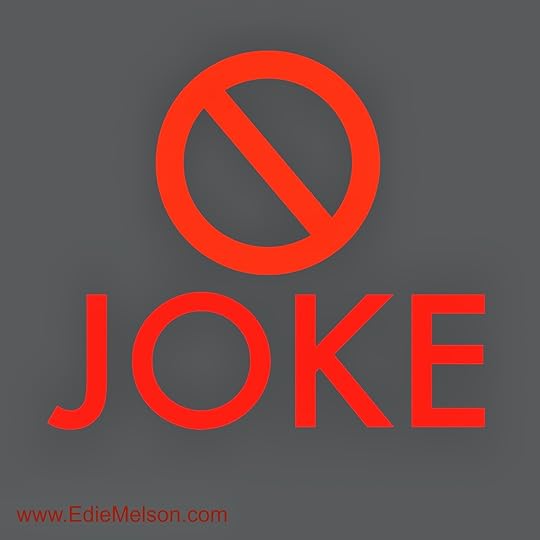 No the title isn't just a bad joke. There really are amazing similarities between these two things. Today I’m going to share the answer to the burning question, “How is writing like a blind date?”
No the title isn't just a bad joke. There really are amazing similarities between these two things. Today I’m going to share the answer to the burning question, “How is writing like a blind date?”
You may think I’m nuts, but hang in here with me. There are a lot more similarities to these two circumstances than you might initially think. It doesn’t matter whether you’re the writer or the reader, unless you’ve met before neither one of you knows exactly what to expect. So I’ve come up with some writing/dating Dos and Don’ts you might want to consider. First, DO put your best foot forward. Your buddies may know you’re a great guy, but if you show up for that first date in a t-shirt and cut-offs, you’re going to have a hard time convincing her of it. Conversely, if your date has told you it’s going to be a back yard cook-out and you pull out the stilettos and pearls there’s probably not going to be another date. The same is true of writing. It doesn’t matter what you’re writing, a blog post or the second novel in your award-wining series, you only get one chance to make a GOOD first impression. If you’re composing a blog post, keep the tone conversational and leave the buttoned-up world of formal writing at home. Second, DON’T be misleading. Only a fool would rent a Porsche and pretend to be rich on a first date, thinking the initial wrong impression would be so impressive it would be forgiven later. The same is true when we promise our reader one thing with a title or opening paragraph and then deliver something entirely different. Lying is way too much trouble and it never ends well.Third, DO give the other person a chance to get to know you. Nobody likes to be cornered by the insecure person who tells you her life story in an hours-long monologue. Information dumping, especially in fiction, comes across exactly like that. Make the reader curious and let them wonder about what’s to come. Leave a room for a little mystery and a bit of flirting. Trust me—it’s much more fun that way!Finally, DON’T underestimate the intelligence of the one you’re with. None of us like to be talked down to—especially by someone we’ve just met. The same is true of readers. They often understand more than what we give them credit for. We don’t have to beat them over the head with a point for them to get it.
Second, DON’T be misleading. Only a fool would rent a Porsche and pretend to be rich on a first date, thinking the initial wrong impression would be so impressive it would be forgiven later. The same is true when we promise our reader one thing with a title or opening paragraph and then deliver something entirely different. Lying is way too much trouble and it never ends well.Third, DO give the other person a chance to get to know you. Nobody likes to be cornered by the insecure person who tells you her life story in an hours-long monologue. Information dumping, especially in fiction, comes across exactly like that. Make the reader curious and let them wonder about what’s to come. Leave a room for a little mystery and a bit of flirting. Trust me—it’s much more fun that way!Finally, DON’T underestimate the intelligence of the one you’re with. None of us like to be talked down to—especially by someone we’ve just met. The same is true of readers. They often understand more than what we give them credit for. We don’t have to beat them over the head with a point for them to get it.
 If you think about it, you'll see these guidelines make sense. With writing, like blind dates, the first impression counts. Your first line is your reader’s first impression and many times it determines whether or not he will go any further in the relationship.
If you think about it, you'll see these guidelines make sense. With writing, like blind dates, the first impression counts. Your first line is your reader’s first impression and many times it determines whether or not he will go any further in the relationship.
So how good are you at this writing/dating game? What kind of writers have you dated? Have you noticed any of these in the things you’ve read/written?
Don’t forget to join the conversation!Blessings,
Edie
TWEETABLESHow is writing like a blind date? Not a joke--the similarities @EdieMelson points out may surprise you (Click to Tweet)
How good are you at the writing/dating game? @EdieMelson shares how writing is like a blind date (Click to Tweet)
 No the title isn't just a bad joke. There really are amazing similarities between these two things. Today I’m going to share the answer to the burning question, “How is writing like a blind date?”
No the title isn't just a bad joke. There really are amazing similarities between these two things. Today I’m going to share the answer to the burning question, “How is writing like a blind date?” You may think I’m nuts, but hang in here with me. There are a lot more similarities to these two circumstances than you might initially think. It doesn’t matter whether you’re the writer or the reader, unless you’ve met before neither one of you knows exactly what to expect. So I’ve come up with some writing/dating Dos and Don’ts you might want to consider. First, DO put your best foot forward. Your buddies may know you’re a great guy, but if you show up for that first date in a t-shirt and cut-offs, you’re going to have a hard time convincing her of it. Conversely, if your date has told you it’s going to be a back yard cook-out and you pull out the stilettos and pearls there’s probably not going to be another date. The same is true of writing. It doesn’t matter what you’re writing, a blog post or the second novel in your award-wining series, you only get one chance to make a GOOD first impression. If you’re composing a blog post, keep the tone conversational and leave the buttoned-up world of formal writing at home.
 Second, DON’T be misleading. Only a fool would rent a Porsche and pretend to be rich on a first date, thinking the initial wrong impression would be so impressive it would be forgiven later. The same is true when we promise our reader one thing with a title or opening paragraph and then deliver something entirely different. Lying is way too much trouble and it never ends well.Third, DO give the other person a chance to get to know you. Nobody likes to be cornered by the insecure person who tells you her life story in an hours-long monologue. Information dumping, especially in fiction, comes across exactly like that. Make the reader curious and let them wonder about what’s to come. Leave a room for a little mystery and a bit of flirting. Trust me—it’s much more fun that way!Finally, DON’T underestimate the intelligence of the one you’re with. None of us like to be talked down to—especially by someone we’ve just met. The same is true of readers. They often understand more than what we give them credit for. We don’t have to beat them over the head with a point for them to get it.
Second, DON’T be misleading. Only a fool would rent a Porsche and pretend to be rich on a first date, thinking the initial wrong impression would be so impressive it would be forgiven later. The same is true when we promise our reader one thing with a title or opening paragraph and then deliver something entirely different. Lying is way too much trouble and it never ends well.Third, DO give the other person a chance to get to know you. Nobody likes to be cornered by the insecure person who tells you her life story in an hours-long monologue. Information dumping, especially in fiction, comes across exactly like that. Make the reader curious and let them wonder about what’s to come. Leave a room for a little mystery and a bit of flirting. Trust me—it’s much more fun that way!Finally, DON’T underestimate the intelligence of the one you’re with. None of us like to be talked down to—especially by someone we’ve just met. The same is true of readers. They often understand more than what we give them credit for. We don’t have to beat them over the head with a point for them to get it.  If you think about it, you'll see these guidelines make sense. With writing, like blind dates, the first impression counts. Your first line is your reader’s first impression and many times it determines whether or not he will go any further in the relationship.
If you think about it, you'll see these guidelines make sense. With writing, like blind dates, the first impression counts. Your first line is your reader’s first impression and many times it determines whether or not he will go any further in the relationship.So how good are you at this writing/dating game? What kind of writers have you dated? Have you noticed any of these in the things you’ve read/written?
Don’t forget to join the conversation!Blessings,
Edie
TWEETABLESHow is writing like a blind date? Not a joke--the similarities @EdieMelson points out may surprise you (Click to Tweet)
How good are you at the writing/dating game? @EdieMelson shares how writing is like a blind date (Click to Tweet)
Published on March 28, 2014 01:00
March 27, 2014
Tips for Finding & Managing the Blogs You Read—or How NOT to Get Blogged Down
by Edie Melson
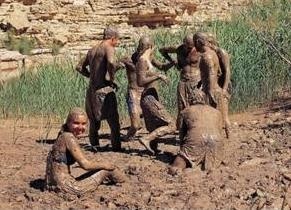 I’ve gotten a lot of questions lately about how to keep up with the blogs you want to read. And some of you complain (rightly so) that you’re following so many blogs you don’t have time to write. Of course I’m also hearing from some who haven’t committed to following any blogs because of a fear that there won’t be any time to write.
I’ve gotten a lot of questions lately about how to keep up with the blogs you want to read. And some of you complain (rightly so) that you’re following so many blogs you don’t have time to write. Of course I’m also hearing from some who haven’t committed to following any blogs because of a fear that there won’t be any time to write.
Either extreme will blog…er…bog down your career. So today I’m sharing tips for finding & managing the blogs you read. All kidding aside, as a writer it’s vitally important to continue your education. And blogs can be an extremely efficient way to do this. I can hear the chorus of complaints now.There are millions of blogs out there—how do I find one that’s worthwhile?How do I narrow down my choices—do I have to read hundreds to find one that fits what I need?Where do I start looking—it’s gonna be like finding a needle in a haystack!
Enough already.
 Finding high quality blogs, that pertain to your situation are just not that hard to find. You find a good blog the same way you find a good book. Think about it, we’ve been shopping for books for years, choosing from millions of titles, and finding success. First, look for recommendations from people you trust.Second, most blogs have blog lists as a part of their layout. If you like blogger A and he likes blogger D, chances are you ought to give it a try.Third, look for blogs from familiar people. Now days, most bloggers have or are at least affiliated with more than one blog.
Finding high quality blogs, that pertain to your situation are just not that hard to find. You find a good blog the same way you find a good book. Think about it, we’ve been shopping for books for years, choosing from millions of titles, and finding success. First, look for recommendations from people you trust.Second, most blogs have blog lists as a part of their layout. If you like blogger A and he likes blogger D, chances are you ought to give it a try.Third, look for blogs from familiar people. Now days, most bloggers have or are at least affiliated with more than one blog.
So how do you manage following blogs and keep from eating into valuable writing time?
I have a plan for that too. I like to use a stair-step approach.
 I start with three to five blogs that I follow regularly. These are blogs I almost always read.Then I have a second level of six to eight blogs that I watch closely. I read these about one half of the time and I decide when by paying close attention to the subject lines and titles of the posts.Next I have a third level of about twelve to fifteen blogs that I watch the subject lines and titles and read when they sound interesting. Finally, and this is VERY important. I delete any I don't have time for. I tried putting them into some sort of get-to-it-later pile. But truthfully, I never found time to go back to that pile.
I start with three to five blogs that I follow regularly. These are blogs I almost always read.Then I have a second level of six to eight blogs that I watch closely. I read these about one half of the time and I decide when by paying close attention to the subject lines and titles of the posts.Next I have a third level of about twelve to fifteen blogs that I watch the subject lines and titles and read when they sound interesting. Finally, and this is VERY important. I delete any I don't have time for. I tried putting them into some sort of get-to-it-later pile. But truthfully, I never found time to go back to that pile.
It's important to remember that there's very little out there that hasn't been said before or won't be said again. If you miss it—and it's important—it really will show up somewhere else.
This is the method that works for me. I’d love to hear how you manage your blog life.
Don’t forget to join the conversation!Blessings,
Edie
TWEETALBESTips for Finding & Managing the Blogs You Read—or How NOT to Get Blogged Down - via @EdieMelson (Click to Tweet)
Getting blogged down by everything you WANT to read on the web? @EdieMelson has some tips to help (Click to Tweet)
 I’ve gotten a lot of questions lately about how to keep up with the blogs you want to read. And some of you complain (rightly so) that you’re following so many blogs you don’t have time to write. Of course I’m also hearing from some who haven’t committed to following any blogs because of a fear that there won’t be any time to write.
I’ve gotten a lot of questions lately about how to keep up with the blogs you want to read. And some of you complain (rightly so) that you’re following so many blogs you don’t have time to write. Of course I’m also hearing from some who haven’t committed to following any blogs because of a fear that there won’t be any time to write.Either extreme will blog…er…bog down your career. So today I’m sharing tips for finding & managing the blogs you read. All kidding aside, as a writer it’s vitally important to continue your education. And blogs can be an extremely efficient way to do this. I can hear the chorus of complaints now.There are millions of blogs out there—how do I find one that’s worthwhile?How do I narrow down my choices—do I have to read hundreds to find one that fits what I need?Where do I start looking—it’s gonna be like finding a needle in a haystack!
Enough already.
 Finding high quality blogs, that pertain to your situation are just not that hard to find. You find a good blog the same way you find a good book. Think about it, we’ve been shopping for books for years, choosing from millions of titles, and finding success. First, look for recommendations from people you trust.Second, most blogs have blog lists as a part of their layout. If you like blogger A and he likes blogger D, chances are you ought to give it a try.Third, look for blogs from familiar people. Now days, most bloggers have or are at least affiliated with more than one blog.
Finding high quality blogs, that pertain to your situation are just not that hard to find. You find a good blog the same way you find a good book. Think about it, we’ve been shopping for books for years, choosing from millions of titles, and finding success. First, look for recommendations from people you trust.Second, most blogs have blog lists as a part of their layout. If you like blogger A and he likes blogger D, chances are you ought to give it a try.Third, look for blogs from familiar people. Now days, most bloggers have or are at least affiliated with more than one blog. So how do you manage following blogs and keep from eating into valuable writing time?
I have a plan for that too. I like to use a stair-step approach.
 I start with three to five blogs that I follow regularly. These are blogs I almost always read.Then I have a second level of six to eight blogs that I watch closely. I read these about one half of the time and I decide when by paying close attention to the subject lines and titles of the posts.Next I have a third level of about twelve to fifteen blogs that I watch the subject lines and titles and read when they sound interesting. Finally, and this is VERY important. I delete any I don't have time for. I tried putting them into some sort of get-to-it-later pile. But truthfully, I never found time to go back to that pile.
I start with three to five blogs that I follow regularly. These are blogs I almost always read.Then I have a second level of six to eight blogs that I watch closely. I read these about one half of the time and I decide when by paying close attention to the subject lines and titles of the posts.Next I have a third level of about twelve to fifteen blogs that I watch the subject lines and titles and read when they sound interesting. Finally, and this is VERY important. I delete any I don't have time for. I tried putting them into some sort of get-to-it-later pile. But truthfully, I never found time to go back to that pile.It's important to remember that there's very little out there that hasn't been said before or won't be said again. If you miss it—and it's important—it really will show up somewhere else.
This is the method that works for me. I’d love to hear how you manage your blog life.
Don’t forget to join the conversation!Blessings,
Edie
TWEETALBESTips for Finding & Managing the Blogs You Read—or How NOT to Get Blogged Down - via @EdieMelson (Click to Tweet)
Getting blogged down by everything you WANT to read on the web? @EdieMelson has some tips to help (Click to Tweet)
Published on March 27, 2014 01:00
March 25, 2014
The Holy Grail of Writing—Finding the Right Word
by Edie Melson
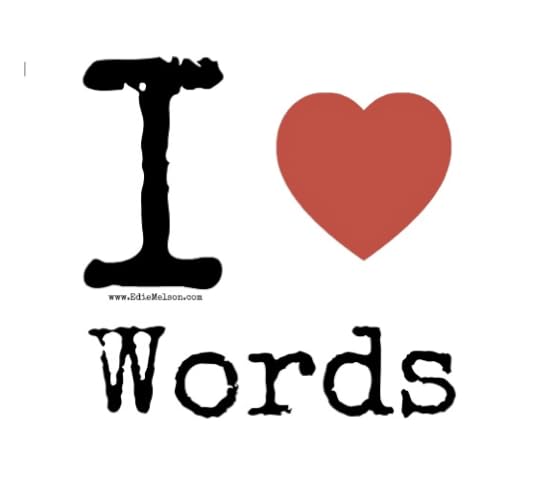 We’re writers, so it’s a given that we’re word people.
We’re writers, so it’s a given that we’re word people.
For most of us it goes way beyond just a love of words. Writing is the way we process the world around us. As a matter of fact, I was having a discussion with someone who was bemoaning the fact that I’m nearly as nice in person as I am on paper.
Unfortunately she’s right. I’m not.
It’s not that I don’t try, I really do. But I need the opportunity to filter my words through the act of putting them on paper first.
And that brings me to the point of this post. How do we find that perfect word when we’re trying to convey something on paper? Today I want to share how I go about searching for that elusive holy grail of writing.
1. The Thesaurus. I know, this is kind of a no-brainer. But I’m amazed at the number of writers who skip this step. I have a physical thesaurus on the shelf above my desk, but more often than that, I use an online version. My favorite is Thesaurus.com.
 2. The Dictionary. It’s not as easy to use as a thesaurus, but sometimes I’ll thumb through the pages and find just what I’m looking for.
2. The Dictionary. It’s not as easy to use as a thesaurus, but sometimes I’ll thumb through the pages and find just what I’m looking for.
3. The Emotion Thesaurus. This reference book from Becca Puglisi and Angela Ackerman should be in every writer’s library. They have two new books out as well, The Positive Trait Thesaurus and The Negative Trait Thesaurus. You can find out all about them at Writers Helping Writers.
 4. Facebook & Twitter. You can ask for word suggestions by posting the request on social media. This will not only get you what you’re looking for, but up your visibility and interaction on social media (always a good thing).
4. Facebook & Twitter. You can ask for word suggestions by posting the request on social media. This will not only get you what you’re looking for, but up your visibility and interaction on social media (always a good thing).
5. Free Writing. Sometimes nothing beats old-fashioned pen and paper. I start writing around what I want to say and I come up with some pretty amazing stuff.
These are the things I do when the just-right word evades my catch. What do you do when the cat’s got your tongue?
Don’t forget to join the conversation!Blessings,
Edie
TWEETABLESFinding the Right Word - tips for attaining the Holy Grail of Writing - via @EdieMelson (Click to Tweet)
We all have times when the right word eludes us - 5 tips to find that elusive group of letters via @EdieMelson (Click to Tweet)
 We’re writers, so it’s a given that we’re word people.
We’re writers, so it’s a given that we’re word people.For most of us it goes way beyond just a love of words. Writing is the way we process the world around us. As a matter of fact, I was having a discussion with someone who was bemoaning the fact that I’m nearly as nice in person as I am on paper.
Unfortunately she’s right. I’m not.
It’s not that I don’t try, I really do. But I need the opportunity to filter my words through the act of putting them on paper first.
And that brings me to the point of this post. How do we find that perfect word when we’re trying to convey something on paper? Today I want to share how I go about searching for that elusive holy grail of writing.
1. The Thesaurus. I know, this is kind of a no-brainer. But I’m amazed at the number of writers who skip this step. I have a physical thesaurus on the shelf above my desk, but more often than that, I use an online version. My favorite is Thesaurus.com.
 2. The Dictionary. It’s not as easy to use as a thesaurus, but sometimes I’ll thumb through the pages and find just what I’m looking for.
2. The Dictionary. It’s not as easy to use as a thesaurus, but sometimes I’ll thumb through the pages and find just what I’m looking for. 3. The Emotion Thesaurus. This reference book from Becca Puglisi and Angela Ackerman should be in every writer’s library. They have two new books out as well, The Positive Trait Thesaurus and The Negative Trait Thesaurus. You can find out all about them at Writers Helping Writers.
 4. Facebook & Twitter. You can ask for word suggestions by posting the request on social media. This will not only get you what you’re looking for, but up your visibility and interaction on social media (always a good thing).
4. Facebook & Twitter. You can ask for word suggestions by posting the request on social media. This will not only get you what you’re looking for, but up your visibility and interaction on social media (always a good thing).5. Free Writing. Sometimes nothing beats old-fashioned pen and paper. I start writing around what I want to say and I come up with some pretty amazing stuff.
These are the things I do when the just-right word evades my catch. What do you do when the cat’s got your tongue?
Don’t forget to join the conversation!Blessings,
Edie
TWEETABLESFinding the Right Word - tips for attaining the Holy Grail of Writing - via @EdieMelson (Click to Tweet)
We all have times when the right word eludes us - 5 tips to find that elusive group of letters via @EdieMelson (Click to Tweet)
Published on March 25, 2014 01:00
March 24, 2014
Pinterest Business or Personal Page—Which Should a Writer Have & How to Convert Your Account
by Edie Melson
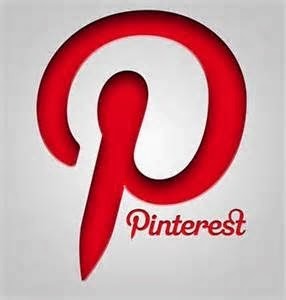 Pinterest has rolled out the option of having a business page. And although there isn’t currently any difference in how a business and personal page looks, there is a difference in the user agreement and in some aspects of how you sign up for an account.
Pinterest has rolled out the option of having a business page. And although there isn’t currently any difference in how a business and personal page looks, there is a difference in the user agreement and in some aspects of how you sign up for an account.
Terms of Service AgreementHere are the links to the Personal Terms of Service Agreement, and Business Terms of Service Agreement.
But to summarize the differences, Pinterest now states that anyone who wishes to use Pinterest for commercial purposes must create a business account and agree to the Business Terms of Service Agreement. Authors do fall under the business category.
Business Names & WebsitesOn the business pages, it’s possible to enter your entire business name without dealing with the FIRST and LAST entries. Pinterest has also streamlined the website verification process for businesses.
Step-by-Step DirectionsIf you want to convert your account to a business account here’s how to do it.
First, sign in to your Pinterest Account then go to www.business.pinterest.com
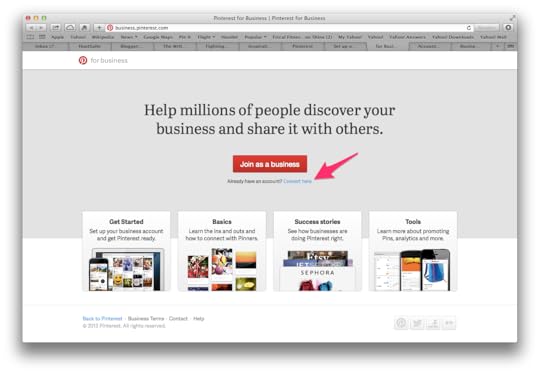 This is what you'll see when you go to business.pinterest.com.Next, Click CONVERT HEREOnce there, you’ll have a form to fill out. Under business type, I recommend you choose Professional. Fill in the rest of the form—there won’t be many blanks if you already have a personal account.
This is what you'll see when you go to business.pinterest.com.Next, Click CONVERT HEREOnce there, you’ll have a form to fill out. Under business type, I recommend you choose Professional. Fill in the rest of the form—there won’t be many blanks if you already have a personal account.
Then click Accept for the Terms of Service Agreement.
It really is very simple. Your boards and everyone who follows you will migrate to your account. You shouldn’t be able to tell a difference from before and after. I’ll continue to watch how Pinterest begins to differentiate between the two types of accounts and keep you updated.
For now, be sure to share any questions you have about Pinterest in the comments section below.
Don’t forget to join the conversation!Blessings,
Edie
TWEETABLESPinterest now has personal and business accounts - Which should a writer have & why - via @EdieMelson (Click to Tweet)
Convert your personal Pinterest to a Business account - step-by-step instructions via @EdieMelson (Click to Tweet)
 Pinterest has rolled out the option of having a business page. And although there isn’t currently any difference in how a business and personal page looks, there is a difference in the user agreement and in some aspects of how you sign up for an account.
Pinterest has rolled out the option of having a business page. And although there isn’t currently any difference in how a business and personal page looks, there is a difference in the user agreement and in some aspects of how you sign up for an account.Terms of Service AgreementHere are the links to the Personal Terms of Service Agreement, and Business Terms of Service Agreement.
But to summarize the differences, Pinterest now states that anyone who wishes to use Pinterest for commercial purposes must create a business account and agree to the Business Terms of Service Agreement. Authors do fall under the business category.
Business Names & WebsitesOn the business pages, it’s possible to enter your entire business name without dealing with the FIRST and LAST entries. Pinterest has also streamlined the website verification process for businesses.
Step-by-Step DirectionsIf you want to convert your account to a business account here’s how to do it.
First, sign in to your Pinterest Account then go to www.business.pinterest.com
 This is what you'll see when you go to business.pinterest.com.Next, Click CONVERT HEREOnce there, you’ll have a form to fill out. Under business type, I recommend you choose Professional. Fill in the rest of the form—there won’t be many blanks if you already have a personal account.
This is what you'll see when you go to business.pinterest.com.Next, Click CONVERT HEREOnce there, you’ll have a form to fill out. Under business type, I recommend you choose Professional. Fill in the rest of the form—there won’t be many blanks if you already have a personal account. Then click Accept for the Terms of Service Agreement.
It really is very simple. Your boards and everyone who follows you will migrate to your account. You shouldn’t be able to tell a difference from before and after. I’ll continue to watch how Pinterest begins to differentiate between the two types of accounts and keep you updated.
For now, be sure to share any questions you have about Pinterest in the comments section below.
Don’t forget to join the conversation!Blessings,
Edie
TWEETABLESPinterest now has personal and business accounts - Which should a writer have & why - via @EdieMelson (Click to Tweet)
Convert your personal Pinterest to a Business account - step-by-step instructions via @EdieMelson (Click to Tweet)
Published on March 24, 2014 01:00
March 23, 2014
Weekend Worship—The Breath of God
Your name will no longer be Abram, but your name will be Abraham, for I will make you the father of many nations . . . God also said to Abraham, "As for Sarai your wife, you are no longer to call her Sarai; her name will be Sarah. Genesis 17:5, 15
 So often we become God’s children, long before we allow Him to breathe life into our lives. Our hearts belong to him, but we often resist the changes He wants to make in us.
So often we become God’s children, long before we allow Him to breathe life into our lives. Our hearts belong to him, but we often resist the changes He wants to make in us.
I think the same thing was true of Abraham and Sarah. They followed God for quite a while before they actually let Him make the changes He wanted. It this instance in the Bible is when He made those changes.
These name changes were very significant. God added an H to both their names. If you say the sound that an H makes, it’s an exhalation of breath. I think this was when they allowed God to breathe life into them.
How would your life change, if you allowed God to breath life into your current circumstances? Definitely something to ponder.
 So often we become God’s children, long before we allow Him to breathe life into our lives. Our hearts belong to him, but we often resist the changes He wants to make in us.
So often we become God’s children, long before we allow Him to breathe life into our lives. Our hearts belong to him, but we often resist the changes He wants to make in us. I think the same thing was true of Abraham and Sarah. They followed God for quite a while before they actually let Him make the changes He wanted. It this instance in the Bible is when He made those changes.
These name changes were very significant. God added an H to both their names. If you say the sound that an H makes, it’s an exhalation of breath. I think this was when they allowed God to breathe life into them.
How would your life change, if you allowed God to breath life into your current circumstances? Definitely something to ponder.
Published on March 23, 2014 01:00
March 22, 2014
Social Media Image—Spring Really Is Coming
I'm tired of winter. But I know spring really is coming . . . eventually.
How do you keep your spirits up when winter drags on and on and on. And no, I'm not just talking about the physical seasons. Sometimes our times of winter have nothing to do with the weather.
 the earth laughs in flowers —e.e. cummingsShare your thoughts in the comment section below.
the earth laughs in flowers —e.e. cummingsShare your thoughts in the comment section below.
I also invite you to use this image any way you like online. Post it to your blog, share it on Facebook, Twitter, Pinterest, anywhere you'd like. All I ask is that you keep it intact, with my website watermark visible.
Don't forget to join the conversation!Blessings,Edie
How do you keep your spirits up when winter drags on and on and on. And no, I'm not just talking about the physical seasons. Sometimes our times of winter have nothing to do with the weather.
 the earth laughs in flowers —e.e. cummingsShare your thoughts in the comment section below.
the earth laughs in flowers —e.e. cummingsShare your thoughts in the comment section below. I also invite you to use this image any way you like online. Post it to your blog, share it on Facebook, Twitter, Pinterest, anywhere you'd like. All I ask is that you keep it intact, with my website watermark visible.
Don't forget to join the conversation!Blessings,Edie
Published on March 22, 2014 01:00
March 20, 2014
Fueling the Creative Fire
by Edie Melson
 Tips for Fueling the Creative Fire.
Tips for Fueling the Creative Fire.
We all need to stoke creative fire from time to time. This is my short list of how I recharge and renew.Schedule a movie night—I love to see the way others present stories.Get away with my camera—Focusing on a new point of view through the lens of a camera gives me a new perspective.Brainstorm with writing buddies—I have an amazing network of writing friends. When we get together and just let our imaginations soar the stories get more interesting. Getting away is a good choice.Take a walk—Even though I never really want to go for that walk, the exercise brings energy to whatever I’m working on.Visit a museum—I’ve always loved museums, all types, from art to history. To me, they are a time machine to another time and place.Try something out of the box—If my current project is long, like a book, I begin something short, like flash fiction or even a poem. I’ve even been known to make up a new persona and write something in a different voice.Exercise another creative muscle—For me that’s knitting, jewelry making or even crafting.Take the day off—Sometimes getting away is the best the best choice of all.
Getting away is a good choice.Take a walk—Even though I never really want to go for that walk, the exercise brings energy to whatever I’m working on.Visit a museum—I’ve always loved museums, all types, from art to history. To me, they are a time machine to another time and place.Try something out of the box—If my current project is long, like a book, I begin something short, like flash fiction or even a poem. I’ve even been known to make up a new persona and write something in a different voice.Exercise another creative muscle—For me that’s knitting, jewelry making or even crafting.Take the day off—Sometimes getting away is the best the best choice of all.
These are my best tips on how to fuel the creative fire when it begins to burn low. I’d love to know what you do.
Don’t forget to join the conversation! Blessings,
Edie
TWEETABLESFueling the Creative Fire - tips to renew and re-energize when the writing passion burns low via @EdieMelson (Click to Tweet)
How do you fuel your creative fire when the passions burns low? @EdieMelson shares her tips here (Click to Tweet)
 Tips for Fueling the Creative Fire.
Tips for Fueling the Creative Fire.We all need to stoke creative fire from time to time. This is my short list of how I recharge and renew.Schedule a movie night—I love to see the way others present stories.Get away with my camera—Focusing on a new point of view through the lens of a camera gives me a new perspective.Brainstorm with writing buddies—I have an amazing network of writing friends. When we get together and just let our imaginations soar the stories get more interesting.
 Getting away is a good choice.Take a walk—Even though I never really want to go for that walk, the exercise brings energy to whatever I’m working on.Visit a museum—I’ve always loved museums, all types, from art to history. To me, they are a time machine to another time and place.Try something out of the box—If my current project is long, like a book, I begin something short, like flash fiction or even a poem. I’ve even been known to make up a new persona and write something in a different voice.Exercise another creative muscle—For me that’s knitting, jewelry making or even crafting.Take the day off—Sometimes getting away is the best the best choice of all.
Getting away is a good choice.Take a walk—Even though I never really want to go for that walk, the exercise brings energy to whatever I’m working on.Visit a museum—I’ve always loved museums, all types, from art to history. To me, they are a time machine to another time and place.Try something out of the box—If my current project is long, like a book, I begin something short, like flash fiction or even a poem. I’ve even been known to make up a new persona and write something in a different voice.Exercise another creative muscle—For me that’s knitting, jewelry making or even crafting.Take the day off—Sometimes getting away is the best the best choice of all.These are my best tips on how to fuel the creative fire when it begins to burn low. I’d love to know what you do.
Don’t forget to join the conversation! Blessings,
Edie
TWEETABLESFueling the Creative Fire - tips to renew and re-energize when the writing passion burns low via @EdieMelson (Click to Tweet)
How do you fuel your creative fire when the passions burns low? @EdieMelson shares her tips here (Click to Tweet)
Published on March 20, 2014 01:00



